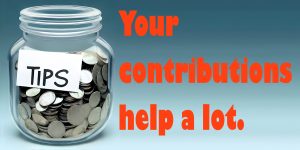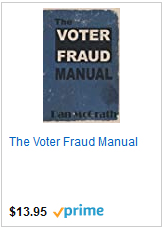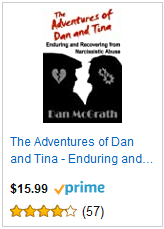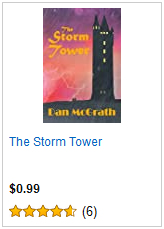How I Engaged in Recovery from Narcissistic Abuse
For the first couple months after I left my abusive relationship, all I could really do was survive. I was having a moral and spiritual crisis and I was viewing the world with new cynical and suspicious eyes. I retreated. It wasn’t until I began to look at my condition more scientifically that I realized it wasn’t only a “time heals all wounds” situation. I could take steps to help the healing process along.
I tried a lot of things, even things I was skeptical of. I wanted desperately to feel normal again. Some things worked better than I imagined they would and some things were about as effective as putting magic crystals on my head. I was fairly unimpressed by aroma therapy, for example.
I was adrift for too long and didn’t immediately appreciate how important stabilizing my housing situation was to my well being. Living out of bags in motel rooms was not at all conducive to healing. I needed a space to make my own.
I had to come to grips with what had happened. I was so confused that nearly all of my brain power was devoted to unraveling what had been years of reality-warping gaslighting. Then, realizing the depths of deception and depravity I’d been entangled with led to deep shame. I was so disappointed in myself for being deceived and manipulated. I didn’t trust my own judgement anymore. Getting that back required learning about cluster B personality disorders and connecting with other people who’d suffered narcissistic abuse. I read so many personal stories and began to see how similar all those experiences were to my own. I wasn’t alone. Coming to understand how the pattern of behavior plays out helped me forgive myself for becoming entrapped and then debilitated by narcissistic abuse victims syndrome.
Even understanding the darkness of narcissistic abuse that I was dealing with, I still suffered from intense feelings of loss and loneliness. This was no ordinary breakup. The relationship was more like an addiction than love. That’s a trauma bond and it had to be broken.
I had firsthand experience with chemical dependency and I recognized that just like when I quit drinking, I was going to have to commit myself to a period of suffering in order to break free and begin recovery. Maintaining no contact was first a physical endurance challenge.
I came to learn that narcissistic abuse leads to physical brain damage. The hippocampus shrinks while the amygdala grows. This leads to chronic confusion, short-term memory loss, anxiety, anger, panic attacks and even bouts of rage. Reversing that damage is crucial to recovery and that’s not a matter for magic crystals. It’s scientifically, physically quantifiable. It’s all about stress hormones, which a person’s brain is continually marinading in while in a relationship with someone with a cluster B personality disorder. This physical change explains why I found myself very jumpy after leaving Tina. I was never physically afraid of her, so I couldn’t understand why my complex post traumatic stress disorder was manifesting as if I’d come out of a bloody war zone. I never had to dodge bullets, so I didn’t get why I’d jump so easily at certain sounds, wake up gasping in adrenaline-pumping fright or jump backwards like Jason Vorhees had lunged at me with a machete, just upon noticing people I wasn’t ready for. It’s because the amygdala controls the fight-or flight response and thanks to a steady diet of overflowing cortisol, mine had grown out of control. These reactions aren’t psychological. They are physical! They are chemical. The amygdala doesn’t distinguish between physical and emotional. A threat is a threat. That revelation changed the course of my recovery.
I began to study what causes increased cortisol production and what can mitigate it. Stimulants are an obvious culprit. Caffeine, nicotine, taurine, etc. All of those (and illegal drugs like methamphetamines or cocaine) elevate stress hormones. Those chemical precursors had to be eliminated, or at least curtailed.
I had to evaluate situations that induced any physical stress or anxiety. That required really paying attention to what was going on in my body. I realized that I was producing a stress response sometimes just by playing intense video games. From that, I learned how to identify other things that were stressing me out and then to limit their impact on me.
I was happy to learn that there were other things I could do beyond just changing some habits. Fish Oil, for example is an effective cortisol-reducer. I began taking it daily and found it almost immediately beneficial. I dabbled with some other supplements for stress-reduction and found some use for Kava Kava and vitamin D.
I gave up energy drinks, but couldn’t quite manage without a cup or two of coffee in the morning, so I allowed that much for myself, but in the evening, I found Hawthorn Tea to be particularly soothing.
Quitting nicotine required a compromise of sorts. I had to forgive myself for gaining some weight. Snacking replaced smoking and vaping, for a few months.
Having undertaken some steps to repair my enlarged amygdala, I began to research ways to address an impaired hippocampus. Many years back, I’d seen a documentary about London taxi drivers which claimed learning the haphazard maze of roads in that city caused a measurable increase in the size of drivers’ hippocampi. So, I knew deliberately, physically changing this part of the brain was possible. I’d had a part time job driving limos for some time and I found it satisfactory, so I was already engaging and exercising my hippocampus with that occupation. I also had an affinity for crossword puzzles and with an app on my phone, I finished at least one a day. Little did I know I was perhaps instinctively engaging in the very activities I needed to repair my hippocampus. Crosswords and logic puzzles are cited by doctors as activities to strengthen that region of the brain!
Light therapy sounds like new agey hocus pocus, but it’s actually helpful for depression. Getting outside on a nice sunny day is best, but when that wasn’t possible (like dark winter days), natural daylight simulating full-spectrum lamps made a noticeable difference for me.
I needed a lot of alone time at first, but as I gradually began to grow stronger and more confident again, getting supportive friends and family back into my life accelerated my recovery and tipped the balance of good and bad days or even hours in my favor.
After I got settled into my condo, making improvements to it were like an analog to improvements I was making inside myself. Putting up decor that reminded me of my history – of who I am – mirrored and reinforced the reconstruction of my very personality.
I gravitated to a lot of elements from my youth. My therapist called it regression, but that seems to have a negative connotation. I restored my operating system to an earlier state that was known to work!. I was buying Cookie Crisp cereal and Eggo waffles like I used to eat before school as a kid.
I was binge watching 70’s science fiction television. Star Trek, Doctor Who, Battlestar Galactica. The old stuff was good. It had a straightforward morality to it. The good guys always won and there was nothing too vicious that could trigger an overblown response of stress hormones. Those kind of things also helped me remember who I was – before the narcissist took over my life. Immersing myself in things that I loved before the narcissist took over my life helped me reconnect with my good, less damaged self (see also: Regression on the path to Healing).
If I wasn’t watching nostalgic sci-fi, it was comedies – just not the romantic varieties.
I had to avoid a lot of music for a while, because most songs are love songs and every love song was about her. Fortunately, I like electronic dance music, because a lot of that is just instrumental.
Writing proved to be instrumental in setting order to the swirls of gaslit confusion in my bleeding brain. Writing my stories helped me reestablish objective reality and hold on to it when emotional and trauma-bonded responses would try to convince me otherwise. It also helped me to segregate the emotions connected to those memories and thereby reduce their impact (Also see: Write it Out for more about writing to heal).
My therapist always counseled patience and self-forgiveness, which are easy enough words to say, but surprisingly difficult to put into practice. I did eventually learn. I was eventually ready to be patient. Though I’ve learned that time isn’t the only factor, it’s still an important one. There is no rushing some healing.
I discovered that I had some delayed mourning to do. I was so wrapped up in all the chaos and confusion of Tina’s making as well as the responsibility of dealing with my Mom’s estate that while still embroiled in the relationship, I never allowed myself the time to fully accept and mourn my mom’s passing, or losing my dog, Clyde to cancer. Delaying the processing of that kind of grief had the unfortunate side effect of prolonging it.
I still practiced kindness and generosity. That’s just who I am, but I gave myself permission to set limits and even to be selfish. It’s OK to be selfish sometimes, especially in times of need. My wellness and comfort could come first. I doubt I’ll ever be exactly the person I was but after a year, I found myself stronger, more confident and having more good days than bad ones. That’s pretty good progress for only a year after narcissistic abuse. I’m certain that being proactive about my recovery instead of just waiting for it made a huge difference.
I’d had my doubts that I’d ever be ready to become romantically involved again, but I’d even started dating quite happily after 6 months or so.
After coming to better understand cluster B personality disorders, in a way, I felt safer in the world because I knew how to recognize them and knew to stay away. On the flip-side, knowing that these people exist and in larger numbers than I would have imagined (6 to 15% of the population, depending on the study) made the world seem a darker place, though.
When I first moved into my condo, Amazon became one of my best friends. Here are some of the exact products I found helpful in my recovery.
This article was originally posted at The Adventures of Dan and Tina, my blog about enduring and recovering from narcissistic abuse. If this subject interests you, please visit and subscribe to updates.






